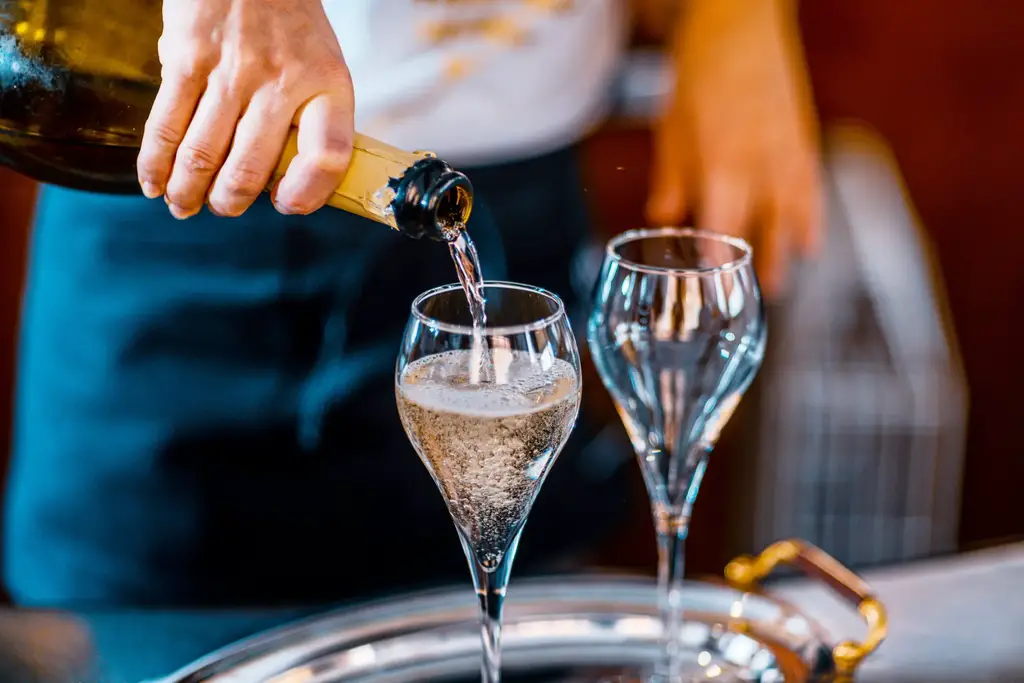Prosecco enthusiasts might soon have to bid farewell to their beloved sparkling wine.
Prosecco is a sparkling wine originating from Italy, specifically the Veneto and Friuli Venezia Giulia regions.
It is made primarily from the Glera grape variety, although other permitted grape varieties may be used in its production.
Prosecco is known for its light and refreshing character, often enjoyed as an aperitif or in cocktails like the Bellini and Mimosa.
But now, researchers have sounded the alarm on the potential extinction of everyone’s favorite basic beverage.

People have been left horrified by the news, with one penning: “This is so scary!”
“Nooo! Anything but Prosecco!” another writes.
While a third adds: “This is the worst news I’ve heard all year!”
The reason that Prosecco is in danger is all to do with centuries-old wine cultures and the delicate ecosystems that support them.
This poses not only an economic risk but also a cultural one, as entire communities risk losing their history and roots.
Climate change is having a profound impact on wine production, and regions known for their iconic wines may soon face irreparable damage.
Steep vineyards and terraced landscapes, known as heroic viticulture, are especially vulnerable to the changing climate.
These unique vineyards, often located in regions like Italy, Spain, and Portugal, have been designated UNESCO World Heritage sites due to their cultural and historical significance.

The concerns raised by scientists focus on two major climate-related risks: soil degradation and drought.
The steep slopes and terraced vineyards of heroic viticulture are typically managed without mechanized tools, making them particularly susceptible to the challenges posed by climate change.
Soil degradation can be accelerated by extreme weather events, such as heavy rainfall that triggers slope failures.
Prolonged droughts are another significant threat, impacting the quality and quantity of grapes.
One concerning trend noted by researchers is the ‘rural exodus’ and the gradual abandonment of mountain landscapes.
Over the past five decades, younger generations have been less inclined to continue the challenging work of viticulture in these extreme conditions, especially when the economic returns are minimal.
The modernization of society, including the adoption of more technology-driven practices, has contributed to the erosion of traditional rural cultures.

Dr. Paolo Tarolli, the lead author of the study, emphasizes the urgency of combining traditional winemaking knowledge with scientific innovation.
He argues that collaboration between farmers and scientists is essential to optimize investments and ensure a functional, sustainable, and secure agricultural landscape.
This partnership is crucial for facing the diverse challenges posed by both natural and human-induced factors.
In addition to economic consequences, the potential loss of entire communities’ history and cultural roots is a deeply concerning aspect of this issue.
Heroic viticulture sites represent not only a unique approach to winemaking but also a cultural heritage that has been passed down through generations.
Preserving these traditions and landscapes is vital not only for the wine industry but also for the cultural identity of these regions.
As climate change continues to affect the delicate ecosystems of wine-producing areas, urgent action is needed to safeguard these iconic landscapes and the communities that depend on them.
Wine lovers worldwide may need to cherish their favorite bottles of Prosecco and other wines from these regions while they are still available, now recognizing the profound cultural significance that goes into every sip.